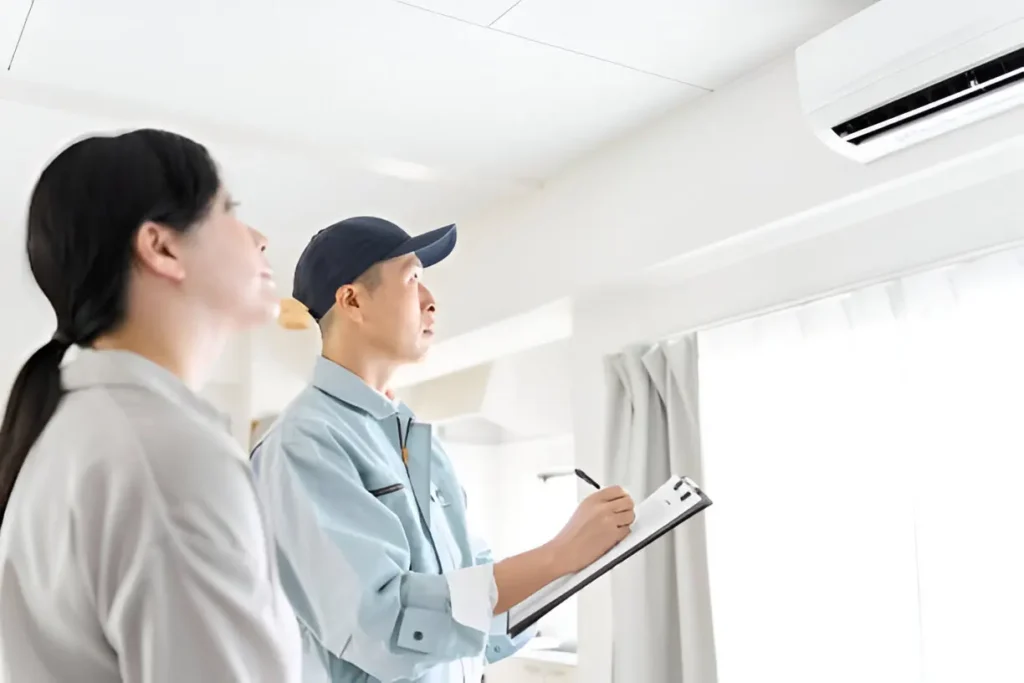Your air conditioner (AC) is indispensable for maintaining comfort during the sweltering summer. Grasping the basics of your AC unit’s components—like the evaporator, condenser, and refrigerant lines—can significantly aid in quick troubleshooting and regular maintenance. Knowing how these parts work in tandem to cool your home will empower you to identify problems before they escalate, helping you avoid sudden, inconvenient breakdowns. Many homeowners spend considerable time without understanding their AC units, only to be surprised by unexpected malfunctions. Taking the time to familiarize yourself with your unit can save you both stress and money.
Replace the Filter Regularly
Remember to change your air conditioner’s filter regularly, as it is one of the most straightforward but essential maintenance tasks. Filters trap pollutants and allergens, improving indoor air quality. When too much debris accumulates, it restricts airflow and forces your AC to work harder, reducing efficiency and increasing energy bills. Experts like those from Roth Home recommend changing the filter every one to three months, depending on usage and the type of filter. Many air conditioning service Gresham OR professionals offer a variety of filters that cater to specific needs, including high-efficiency particulate air (HEPA) filters for enhanced air quality. Regular replacement helps maintain optimal performance and extends the life of your AC unit.
Check and Calibrate the Thermostat
The thermostat functions as the control center of your AC unit. An improperly calibrated thermostat can lead to inefficient operation and increased energy consumption. Periodically check the thermostat settings to ensure it accurately reflects the indoor temperature. Calibration can be done manually by comparing the thermostat’s reading to an accurate room thermometer. Alternatively, upgrading to a smart thermostat can provide precise control, allowing you to set temperature schedules and monitor usage remotely. Smart thermostats can also adapt to your routine, making automatic adjustments that optimize energy consumption without sacrificing comfort.
Clean the Coils
During cooling seasons, your AC’s evaporator and condenser coils accumulate dirt, significantly impacting the unit’s efficiency. Dirty coils restrict airflow and insulate the coils, reducing their ability to absorb and dissipate heat. Clean the coils at least once a year to maintain their efficiency. To clean, switch off the device, remove the outer cover, and carefully wipe the coils with a soft brush, light soap, and water solution. Ensuring the clean coils reduces energy consumption and enhances the unit’s ability to cool your home effectively.
Inspect and Clean Ducts
Air ducts are essential in distributing conditioned air throughout your home. Blockages, leaks, or accumulated dust and debris can reduce the system’s efficiency by restricting airflow. Regular inspection and cleaning of ducts are necessary to ensure they are in optimal condition. Start by checking accessible ducts for signs of wear, tear, or dust build-up. Examine the ducts with a flashlight and then use a vacuum attachment with a hose to clear out any collected dirt. Efficiency can also be increased using duct tape or specialist sealant to plug leaks. According to the Department of Energy, regular ductwork maintenance may increase the efficiency of your air conditioning equipment by up to 20%, saving you money and energy.
Schedule Professional Maintenance
While DIY maintenance is crucial, scheduling regular professional check-ups is equally essential. Professional technicians can conduct a thorough inspection, identifying issues that might not be visible to the untrained eye. Experts can only perform services such as refrigerant recharges, deep cleaning of internal components, and overall system tuning. Annual maintenance visits can prevent minor issues from turning into major repairs, ensuring your unit operates efficiently and reliably. To gain discounts on regular check-ups and reminders, think about establishing a maintenance contract with a reliable HVAC service provider.
Monitor Your AC Performance
Proper air conditioner maintenance is crucial for ensuring optimal performance and energy efficiency, especially during the sweltering summer months. By keeping your system in top shape, you can help manage Pharr electricity rates and reduce energy bills. Regular maintenance not only extends the lifespan of your unit but also ensures you stay cool and comfortable without breaking the bank.
Regularly monitoring your AC’s performance helps avoid potential issues that could lead to costly repairs. Keep an ear out for unusual noises, such as grinding or rattling, which could indicate a mechanical issue. Odd smells, particularly a musty odor, might indicate mold or mildew growth within the system. Observing the airflow from vents can alert you to blockages or leaks requiring immediate attention. Addressing these signs promptly can prevent minor problems from escalating into expensive emergencies.
Energy Savings Tips
Remember to regularly maintain your AC unit to ensure comfort, efficiency, and lower energy bills. You can reduce energy consumption by adjusting the thermostat a few degrees higher, using ceiling fans and air conditioning to improve air circulation, and keeping your outdoor unit shaded from direct sunlight. Using these straightforward yet efficient techniques can assist in conserving electricity and prolonging the life of your air conditioner. While these maintenance tasks may seem time-consuming, the benefits outweigh the effort, as they can save money on repairs and energy costs, prolong the life of your air conditioning unit, and keep your home more comfortable during the warmer months.
Also Read –Salute Your Smile: Maintaining Dental Health as a Veteran
